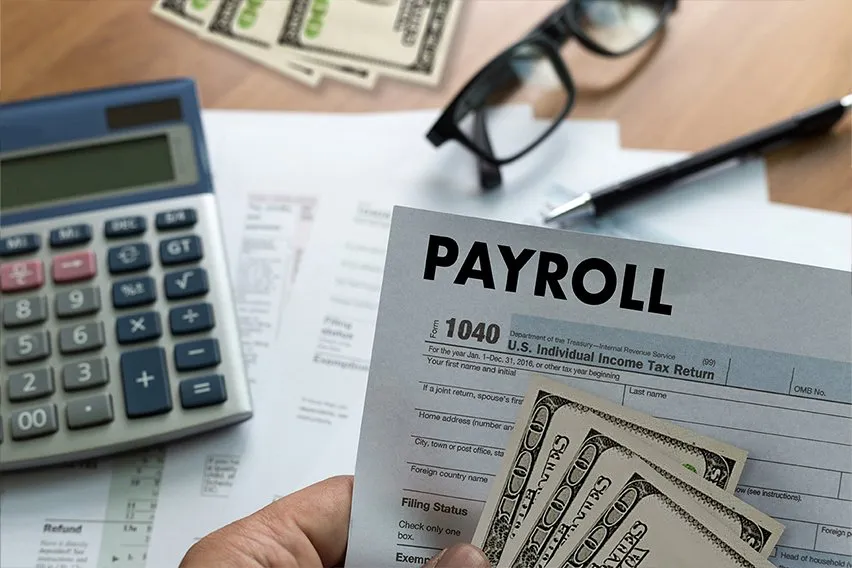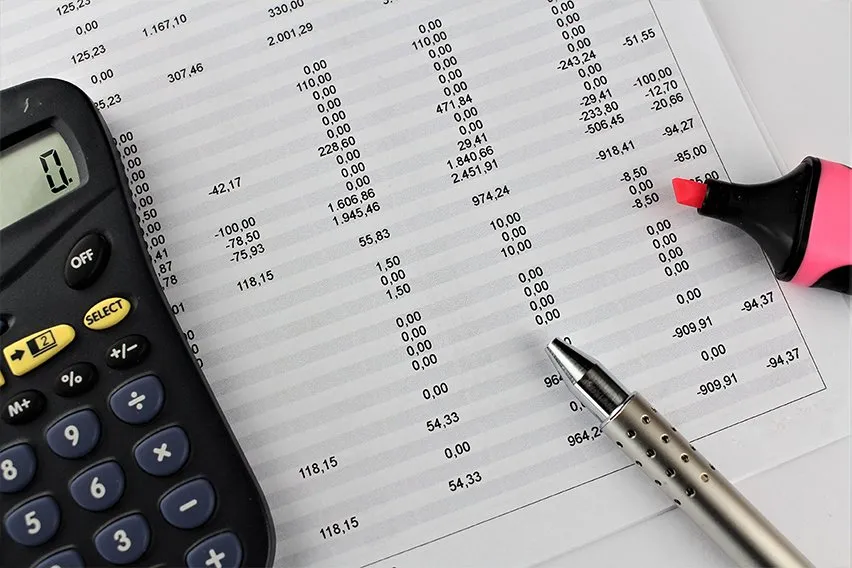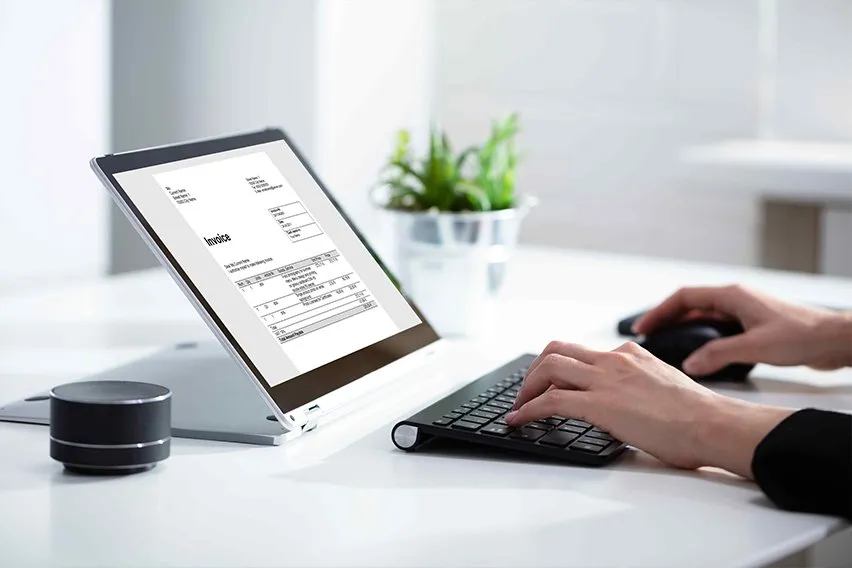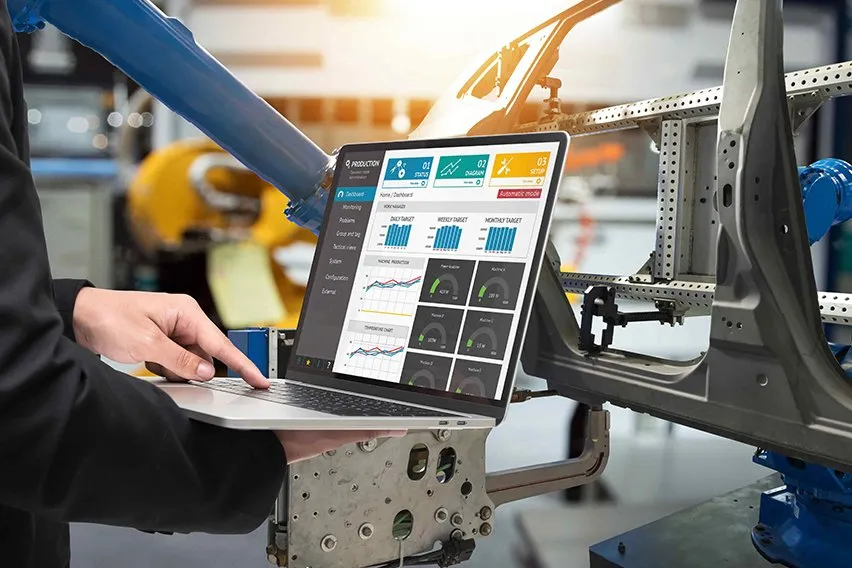What Is an Employer Account Number or EIN

An employer identification number (EIN) is essential for businesses to pay state and local taxes. You can think of an EIN like a social security number, only for a business instead of an individual.
Employer identification numbers are also known as employer account numbers (EANs) in certain states. These are simply different names for the same thing, with the only difference being the state where the business is located.
EINs are tax identification numbers, which are used to distinguish registered businesses in a specific state. It’s quite similar to federal employer identification numbers (FEINs) which are required by certain businesses to pay federal taxes.
Do you need an EAN/EIN for your business? How do they differ from federal identification numbers for businesses? How do you apply for an EIN and how much will it cost you? We’ll cover all of this (and more) in this complete guide on employer account numbers, or state EINs.
Key Takeaways
- Employer identification numbers (EINs) are unique identifiers assigned to businesses, necessary for paying state and local taxes.
- At the state level, EANs and Employer identification numbers (EINs) refer to the same thing.
- Federal employer identification numbers (FEINs) serve the same purpose as state EINs but concern federal income tax instead of state/municipal tax.
- You’ll need an EIN and/or FEIN if your business employs anyone other than yourself.
- The FEIN application process is quick, while the state EIN application (and whether you need a state EIN at all) can vary greatly from state to state.
Table of Contents
- What Is an Employer Account Number (EAN)?
- EAN vs. EIN vs. FEIN: What Are the Differences?
- Do You Need an EAN for Your Business?
- How Much Does It Cost to Get a Tax ID Number for a Business?
- How To Get a State EAN
- How To Apply for an Employer Identification Number
- What If I Lost My Employer Identification Number?
- How Do I Find an Employer Identification Number?
- How Do I Cancel My Employer Identification Number?
- Conclusion
- Frequently Asked Questions
What Is an Employer Account Number (EAN)?
An EAN is a unique identifier assigned to a business by the Internal Revenue Service (IRS).
Think of an EIN as a Social Security number (SSN) for businesses. Some states don’t require businesses to register for state EANs (be sure to check the rules in your state). In places where they’re required, businesses need an EIN to pay state and local taxes, hire employees, open bank accounts, and more.

EAN vs. EIN vs. FEIN: What Are the Differences?
The names of employer account numbers can sometimes get confusing. You may have heard the terms EAN, EIN, and FEIN, and you’ve perhaps even seen them used interchangeably. Let’s explore the differences between these numbers.
- Employer Account Number (EAN): A state-level tax identification number for businesses
- Employer Identification Number (EIN): Unless otherwise indicated by the word ‘federal,’ this is also a state-level tax ID number for businesses
Federal Employer Identification Number (FEIN): This is similar to state EANs/EINs, but it pertains to federal income tax instead of state income tax 1
The important thing to note is that, at the state level, EANs and EINs are the same thing—your state will just call them one name or the other. Certain states have even more names for state EANs, such as “EDD state ID number” in California or “wage withholding account number” in Wyoming. These are sometimes called your “tax ID number” or even “payroll tax account number.”
State EANs are usually 8 or 10 digits long (this depends on the state), unlike Federal EINs, which are always 9 digits. Some states (such as Michigan) will make your state EIN the same as your federal EIN. Other states might place multiple zeroes on either end of your state EIN.
In general, it’s recommended that you research information on state-level EANs/EINs in your state to find out the name(s) and digit length.
Do You Need an EAN for Your Business?
Not all businesses need an EAN or state EIN. You’ll generally need one when you start hiring employees or if your business becomes incorporated. If you don’t have any employees and are classified as a sole proprietor, you’re allowed to use your social security number in place of an EAN most of the time. However, although sole proprietors do not need an EIN, many still get one to reduce the risk of identity theft associated with giving their social security number away.
You might also need multiple state EINs if you hire employees in various states and file state taxes in multiple states. Keep in mind that all but seven states require you to pay a state income tax, but depending on your business structure, you might still have to pay a corporate income tax in all but two states (Wyoming and South Dakota).
If you’re a household employer, you would also need an EIN if you pay a household worker, such as a nanny or a maid, more than a minimal amount in a calendar quarter. Again, this minimal amount varies by state.
What Do You Need an EAN For?
The general purpose of an EAN is for tax and identity purposes. More specifically, you’ll need it for the following reasons:
- To fill your quarterly wage report and pay quarterly state taxes online, you’ll need an EAN in some states.
- To get certain business permits and licenses
- For payroll purposes and to use online payroll services
- For employment tax withholding
- To claim unemployment benefits
- When your employees make initial unemployment claims, they’ll need this number.
- To report your state unemployment taxes. The unemployment law differs from state to state.
How Much Does It Cost to Get a Tax ID Number for a Business?
It doesn’t cost anything to get a federal tax ID number, or FEIN, from the IRS. For state EINs, the costs can vary by state—some states, such as Texas or California, don’t charge any fees to get a tax ID number. You may have associated costs such as opening a business bank account or hiring a professional to help with the application.
Do You Have to Have a Business License to Get a Tax ID Number?
No, you don’t need a business license to get a tax ID number/EAN/EIN. In fact, it often works the other way around—you’ll probably need a federal employment identification number in order to apply for a business license.
State and municipality business licensing requirements can vary depending on where your business is located. Some states or municipalities call these “business permits” or “business registrations,” so be sure to do your research when pursuing your EIN and business license.
How To Get a State EAN
Now that we’ve defined what an EIN is, we can break down the steps to getting your state EIN—here’s what you need to know:
- First, apply for a federal EIN (FEIN)
- Once you receive your FEIN either online, by fax, by mail, or by phone, you’re ready to apply for the state EAN
- Head to your state’s official website for state-specific information on applying for a state-level EAN
- Wait to receive your state EAN (this can sometimes take a little while, so be patient)
- Depending on the state you file for your EAN in, you may get both your state EIN and an Unemployment Insurance (UI) tax rate—be sure to make a note of both of these numbers, since some online payroll services will require them to make state tax payments on your behalf.
How To Apply for an Employer Identification Number
Applying for your federal employer identification number (FEIN) is a straightforward process, especially when you use the IRS’s online system. You can do it in multiple ways, including by fax, mail, or telephone (international applicants only), but the easiest way is online via the IRS website. No matter which method you use, you’ll need to gather all the necessary documents and provide the following information:
- Name and taxpayer ID number (e.g., SSN, ITIN, existing FEIN) of the “true principal officer, general partner, grantor, owner or trustor,” also called the “responsible party” of the business
- Information on the type of legal structure, business, or organization being established
- Employer information
Once you’ve completed the EIN application process and the information is reviewed, you’ll receive your FEIN. If you opt for online EIN approval via the IRS website, you should receive it immediately. 2
What If I Lost My Employer Identification Number?
If you’ve checked in these places and still can’t find your EIN or FEIN, contact the IRS Business & Specialty Tax Line at 800-829-4933.
They’re open from 7 AM to 7 PM local time, Monday through Friday. The representative will identify your information and provide the number over the phone if you’re someone who is authorized to receive it, such as a sole proprietor, business partner, corporate officer, trustee, or estate executor. 3
How Do I Find an Employer Identification Number?
If you have misplaced your EIN or FEIN, the IRS recommends a few steps to take before taking further action:
- Look for your computer-generated FEIN/EIN application confirmation
- If you used a FEIN/EIN to open a bank account, contact the bank for help
- If you previously used the number to file taxes, look at a previous state or federal tax return for the entity whose FEIN /EIN you’ve misplaced
- Previous quarterly reports for the entity (941s)
If you applied for state or municipal licenses, contact the relevant government entity 3
How Do I Cancel My Employer Identification Number?
The IRS cannot cancel a FEIN. Because it is a unique identifier, it can only ever be used for the business it was assigned to—even if you never use it to file a federal tax return.
While the number cannot be canceled, the IRS can close your business account if needed. You might choose to do this if your new business fails to start. To close your business account with the IRS:
- Write a letter that includes:
- The complete legal name of your business entity
- Current FEIN
- Business address (and mailing address, if different)
- The reason for closing your account
- A copy of your EIN Assignment Notice (if you have it)
- Send the letter to the appropriate IRS address—either:
- Internal Revenue Service, MS 6055, Kansas City, MO 64108
or
Internal Revenue Service, MS 6273, Ogden, UT 84201 4

Conclusion
It can be a little confusing for small business owners to understand the differences between state EANs and EINs, along with FEINs and overarching terms like “tax ID numbers.” Ultimately, remember that state EANs and EINs are the same thing and that FEINs refer to a federal employment number.
Knowledge of employment account numbers and other business licenses is vital for employers in all industries. Check out this article for more information on business licenses.
FAQs About Employer Account Number
Still curious about employer account numbers, EINs, FEINs, and which ones your business needs? Here’s more information:
What does an EAN number look like?
State EANs are usually either 8 to 10 digits depending on the state in which they’re issued. Some states may put several zeroes before or after your EIN. Federal EINs, on the other hand, are always 9 digits long, and are always formatted like this: XX-XXXXXXX.
Can you get a loan with an EIN number?
Your employment identification number can be used to get a loan if your business doesn’t have established credit, but you’ll probably also have to provide a personal guarantee to secure any funding.
Do I need an EIN for my LLC?
If you are a single-member LLC with no employees or excise tax liabilities, you won’t be required to get an EIN (though you still can, and there may be advantages to doing so). If you have employees or excise tax liabilities, you’ll be legally required to get an EIN.
Do I need an EIN if I don’t have employees?
No, you don’t need an EIN if you don’t have employees. If you are a sole proprietor or a single-member LLC, your business income is considered to be personal income. This means you can pay income tax for your business with just your Social Security number (SSN), no EIN required.
How long does it take to get an EIN?
You can get your federal EIN virtually instantly by using the IRS online FEIN application service. For state-level EINs, it may take a little longer, but usually will only take a few days or weeks, depending on the method you apply with.
What happens if I never use my EIN number?
If the business you registered your EIN for never made any income or had any losses, and if it didn’t employ anyone besides yourself, your EIN won’t be used when filing tax returns. You won’t be able to cancel your EIN, but you can close your business account with the IRS if you choose.
Article Sources
- Get federal and state tax ID numbers
- How to Apply for an EIN
- Lost or Misplaced Your EIN?
- Canceling an EIN – Closing Your Account
Reviewed by
Kristen Slavin is a CPA with 16 years of experience, specializing in accounting, bookkeeping, and tax services for small businesses. A member of the CPA Association of BC, she also holds a Master’s Degree in Business Administration from Simon Fraser University. In her spare time, Kristen enjoys camping, hiking, and road tripping with her husband and two children. In 2022 Kristen founded K10 Accounting. The firm offers bookkeeping and accounting services for business and personal needs, as well as ERP consulting and audit assistance.
RELATED ARTICLES


 What is a Cost Sheet? Definition, Components & Examples
What is a Cost Sheet? Definition, Components & Examples 6 Best Online Bookkeeping Services for Small Businesses in 2025
6 Best Online Bookkeeping Services for Small Businesses in 2025 How to Set Up Direct Deposit for Employees
How to Set Up Direct Deposit for Employees 7 Best Purchase Order Software – Reviews & Pricing
7 Best Purchase Order Software – Reviews & Pricing What is the Section 199A Deduction?
What is the Section 199A Deduction? What is TAKT Time Formula & How Is It Calculated?
What is TAKT Time Formula & How Is It Calculated?